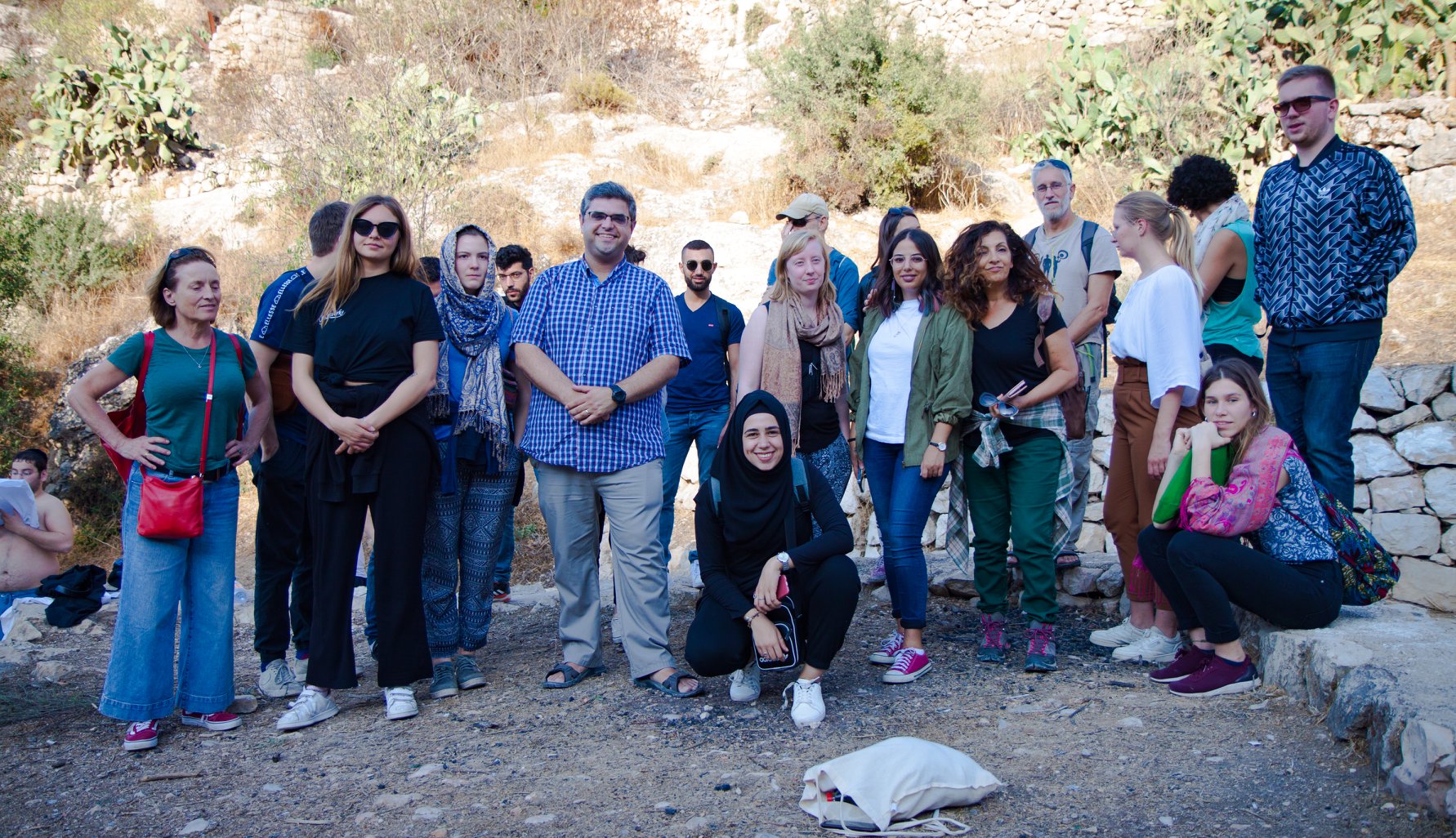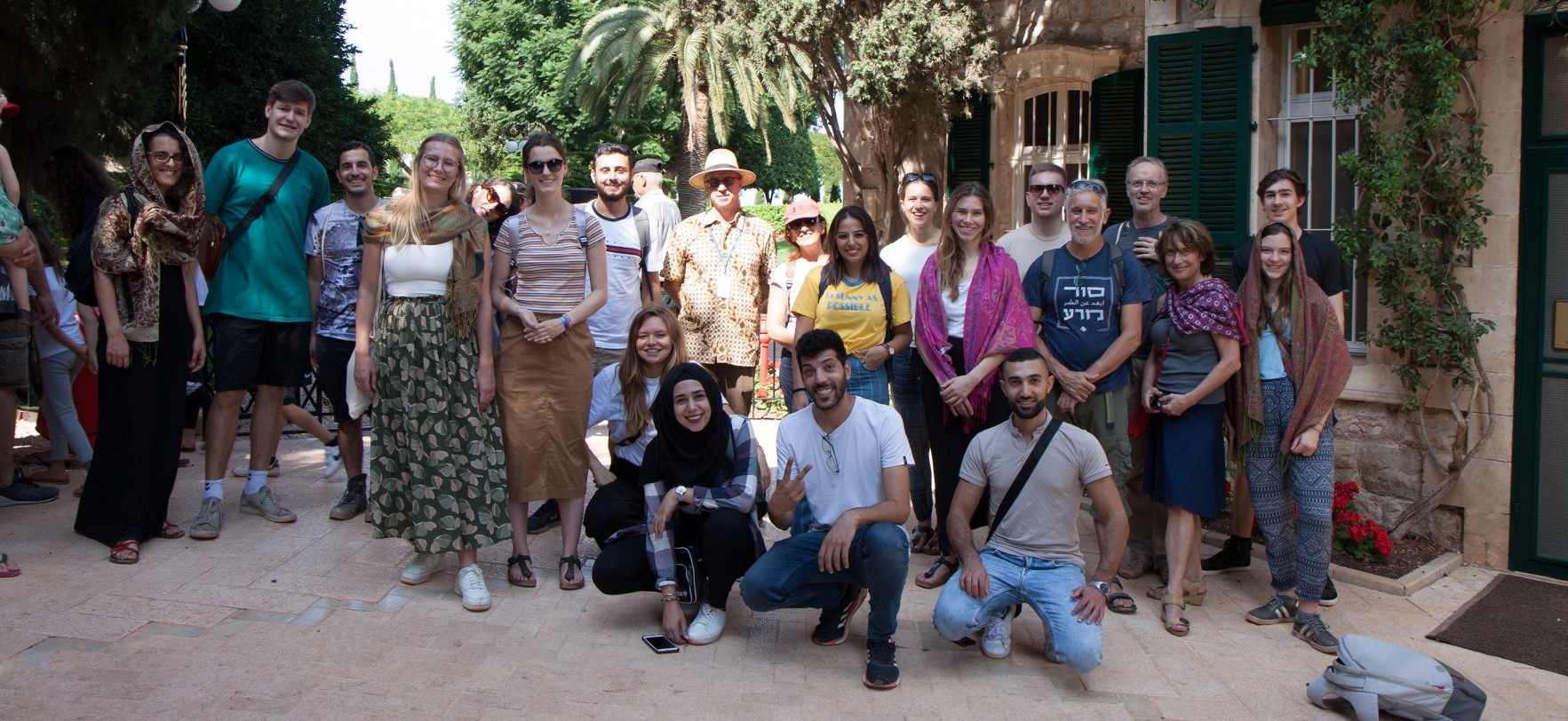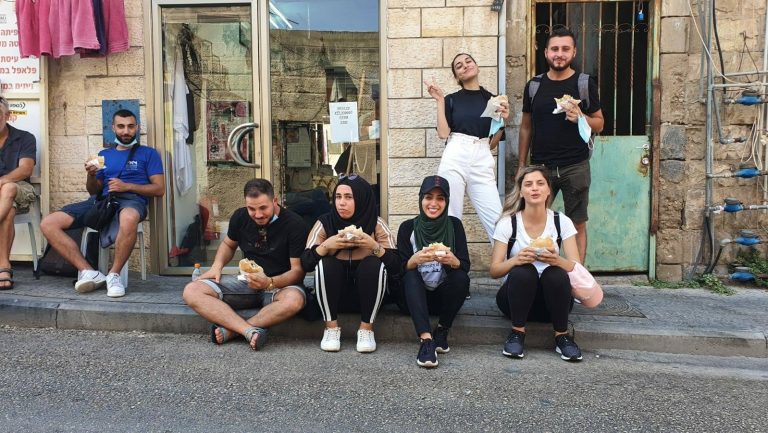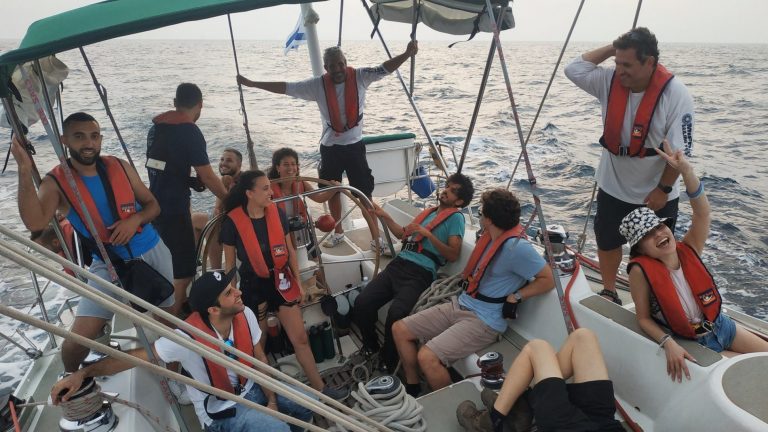If you want to read the article about the first part of our delegation, click here.
Just before the beginning of this academic year, we had the pleasure of hosting the group of German students from Hamburg which we stayed with in the previous part of the first international student-delegation of ‘Mabat’. This week, which was the second and conclusive part of the delegation, was the peak of a year’s worth of activity for the Jewish an Arab students that took part in our multicultural dialog program. A program that ‘Mabat’ is conducting in several colleges and universities in the country for the last 11 years, which its purpose is to introduce the Jewish and Palestinian students to one another’s cultures.
During that week we asked to further understand the multi-cultural reality in Israel, to explore the unique difficulties it arises from the unignorable Israeli-Palestinian conflict, to discover case studies in which multi-cultural harmony does occur and try to identify the factors at play that enables it.
We’d hoped that as a result from that experience the students will get to know new perspectives on the multi-cultural existence in Israel than the ones they maintained before. We also aimed to introduce a direct experience of the complex and unfamiliar reality in Israel to the German students’ group. The last purpose we set for ourselves at that journey were to extract from it some universal principles on multiculturalism and a deepen grasp of the factors that allow harmony and disharmony in multicultural societies.

On the first couple of days of the delegation we stayed at the city of Haifa, the capital of northern Israel, in which we have found some of the most extraordinary and encouraging case studies of multi-cultural existence in Israel.
We’ve been grateful to visit ‘Beit HCh’esed’ (House of Grace), a rehabilitation center for ex-convicts and community center founded in 1982 by Khamil Shh’ada, which been operated by his family ever since. Even though the center is located within the Orthodox-Greek church complex “A-Sayda”, it’s assisting men and women of all religions, sectors and races. We were fascinated to hear from the center’s staff about the solutions they’re implementing in order to cope with that great complexity. It was specially touching to hear about the experiences of some of the students in the group that volunteer at the center as part of ours multicultural dialog scholarship.

From Haifa we continued towards Jerusalem, in which we stayed also for a couple of days, in order to witness the religious multi-cultural complexities that are so specific to it. We toured the old city, at which we payed a visit to each main religion (Jewish, Muslim and Christian) most holy places, and explored the rich history and theology of Jerusalem that shapes and defines the intercultural relations in the country ever since. To further understand the Zionist ethos of Israel we visited the world holocaust remembrance center ‘Yad Vashem’ and Israel’s national cemetery ‘Har Hertzel’.
To acquire a counter-balance perspective we finished our time in Jerusalem at ‘Lifta’, an abandoned Palestinian village, there we got to know the other narrative on the foundation of Israel and its severe consequences on the Palestinian people to this day.
At the last days of the delegation the German students stayed at the local students’ homes, in purpose that this unmediated experience of Israel by the opportunity to accompany the local students on their day-to-day lives will result in a more authentic perception of Israel in the eyes of the German students.
Some of the students that took part in the delegation asked to part in from their experiences.
Maria Fahr, a student from Hamburg tells us:
“What I loved most about the exchange was the group and the deep discussions we had – about life, society, history, art and so much more.
The openness of the people and the respect given to different opinions made it possible for the participants to share emotions and family stories which showed the complexity of the conflicts we tried to grasp. What I take with me is that dialogue is possible and healing. And that dancing through a summer night in Berlin helps us forget all the borders that power structures make us believe exist between one another.”

Salam Eghbaria, a student in ‘Beit Berl’ college joins in:
“I’ve got to be with a great group of people, we clicked almost immediately. It was interesting to travel with them, to make conversations and to hear their thoughts and point of view on multicultural integration in Germany and Israel. I was exposed to a brand-new cultural world which made me fascinated, and to create a motivation to further explore more distinct cultures.”
And finally, Inbal Cohen, a student at the University of Haifa concludes:
“It was super fun! To get to know new people, travel, talk about life and slowly grasp how things get aligned within you in the way. With time it was clear that we succeed to open more easily things that are more vulnerable and personal. The highlight of that for me was when we talked about the day-to-day life of Jewish and Arabs in Israel.”
It was wildly agreed upon that the delegation was a success. The students returned to their day-to-day lives satisfied, inspired and equipped with a deepen multi-cultural awareness. We are hopeful that this delegation would be the beginning of a tradition and that the next one would stand by, or even to advance the high standards that this one fixed.





